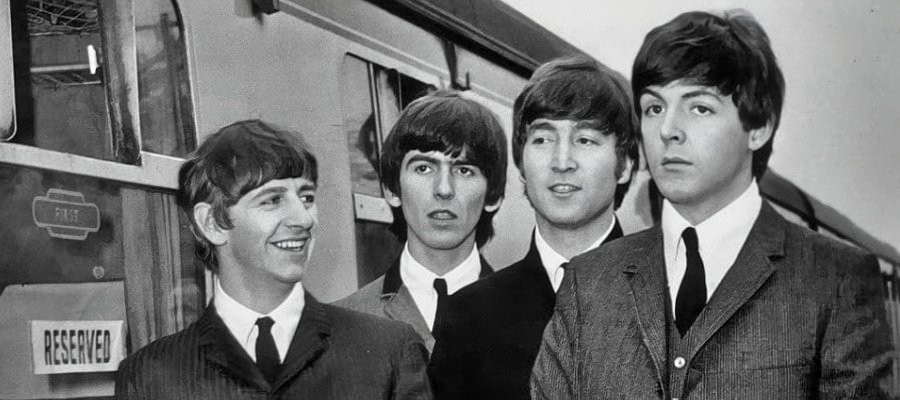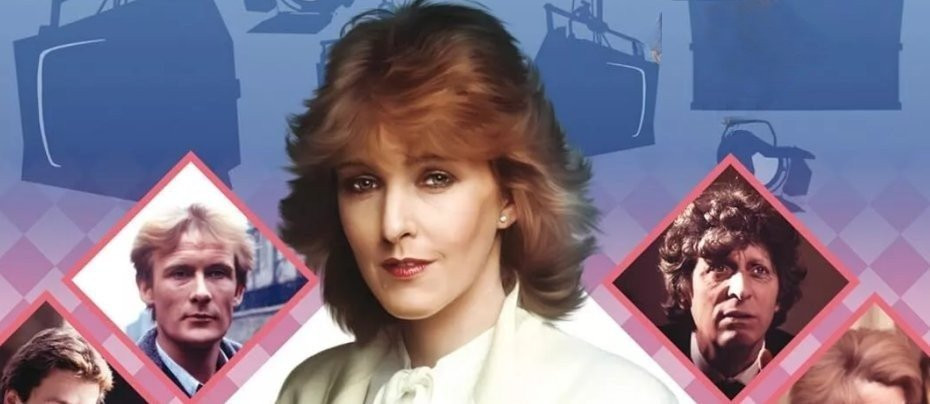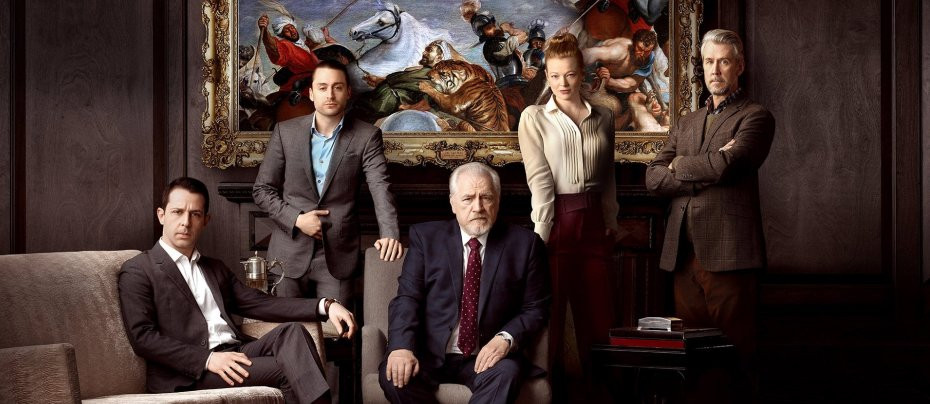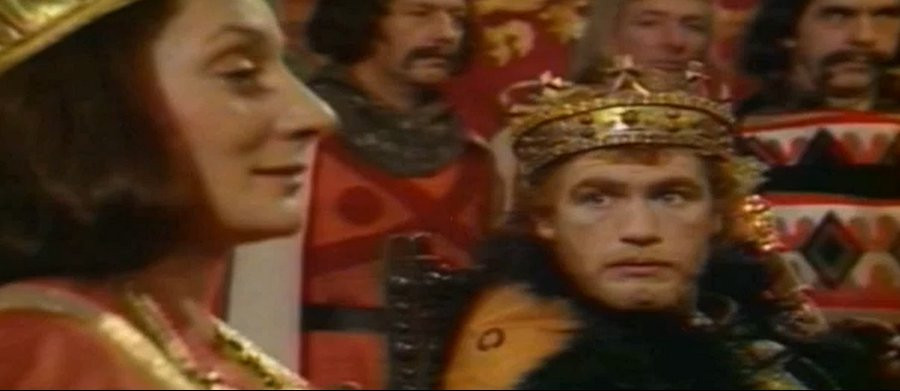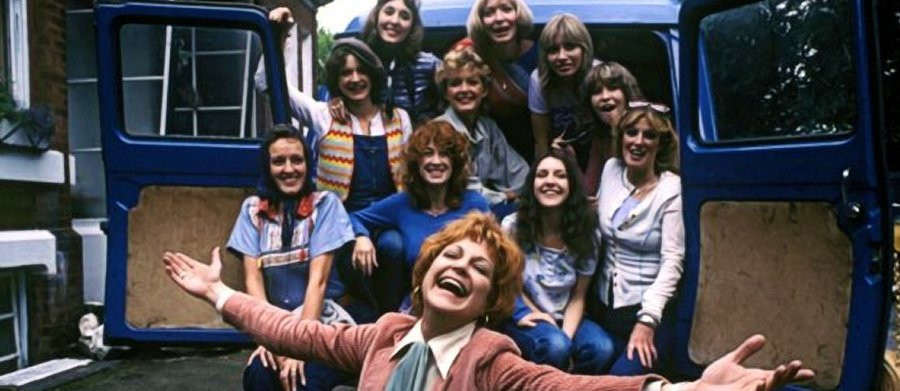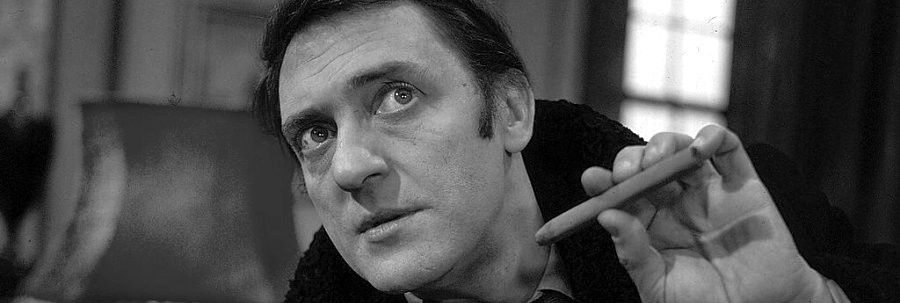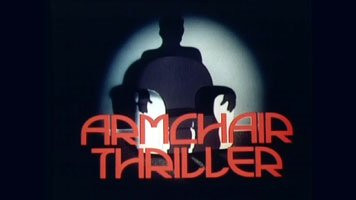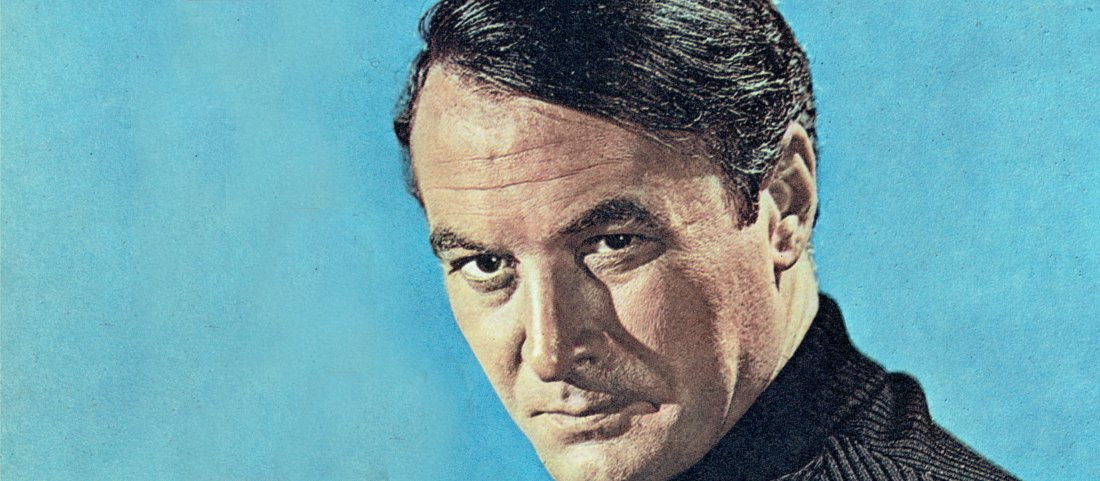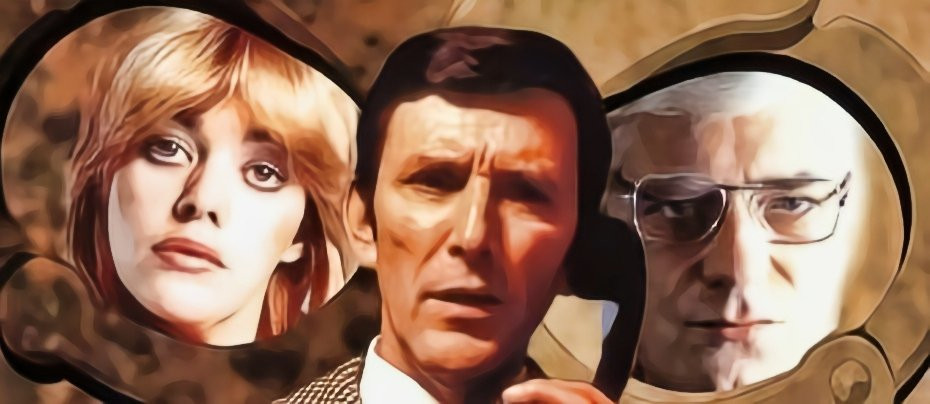
Out
1978 - United KingdomFor eight years hard-man bank-robber Frank Ross has had only one thing to think about, sitting in his prison cell and wondering how he and his gang of four were caught just inches away from a bank vault containing half a million pounds. Even at his trial he searched among the gallery for a familiar face that would show any sign of betrayal.
Eight years was more than a sentence to Eve, Frank's wife. For her, it was the beginning of the end. Suffering from depression and unable to cope on her own, Eve has spent the last six years in a private mental home. Whoever shopped Frank and the gang also put a sentence on Eve and that was another reason why Frank would seek retribution.
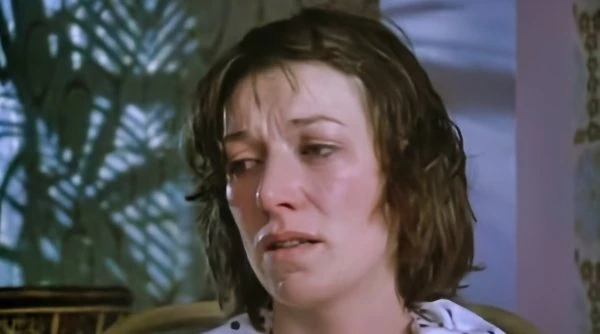
Now, having paid his debt to society, he was out.
Nobody knows who put the finger on him, or if they do, they are not saying anything. In the eight years that he was away a lot has changed. People change. Friends tend to forget and enemies are easily reminded. The news of Frank’s release is not exactly celebrated by everyone.
Out marked a transition period for Euston Films, the subsidiary of Thames Television which, up to this point, had made Special Branch, The Sweeney and Van der Valk. It was the first production commissioned by Verity Lambert, the Controller of Drama at Thames Television prior to her taking over at Euston. The creator and writer of Out, Trevor Preston, had previously written numerous Sweeney scripts but felt as though he was getting a bit stale and even contemplated giving up writing and going into a boat-building business. But his agent encouraged Preston to write an outline for his idea and send it to Lambert. Within three weeks of his submission he was given the go ahead to write the series. Preston would remark, “It renewed my energy because all of the things I have never been able to do on The Sweeney, and indeed on other series I work, which is a lengthy and complex look at character and relationships, I was able to do in Out.
Each of the six episodes would take Frank Ross another step towards his goal for the truth and an inevitable confrontation in the final episode.
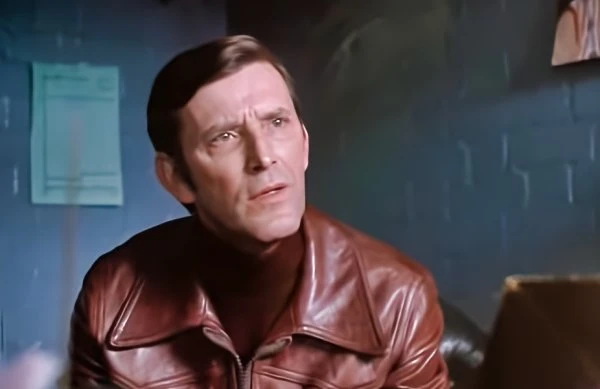
Cast in the role of Frank Ross was Tom Bell, who had made his television debut as a boxer in a 1959 episode of the crime series Dial 999. However, it was his roles in two of ITV’s Armchair Theatre productions that truly captured the attention of casting directors. In one, he portrayed one of three sailors on shore leave in Liverpool in Alun Owen’s No Trams to Lime Street. In another, he played the young clerk Albert Stokes, whose controlling mother frets about his involvement in an “unclean life” with girls, in Harold Pinter’s first play for the small screen, A Night Out. Despite predictions of a promising future for the lean, gaunt-faced actor, those expectations were curtailed when his single-mindedness and anti-establishment nature led him to heckle the Duke of Edinburgh at a British Film Academy Awards dinner, demanding, 'Make us laugh, tell us a joke!' Consequently, with leading roles scarce in cinema, he discovered most of his best parts on television. “I knew I was Frank Ross,” Bell remarked about his initial reaction to reading the script. “I’m not an actor anyway; I just play myself.” His appearance of that of a man who had not been ‘on the outside’ for a number of years was conveyed by his wardrobe which the design team had acquired for a total of £70 from a second-hand clothes shop.
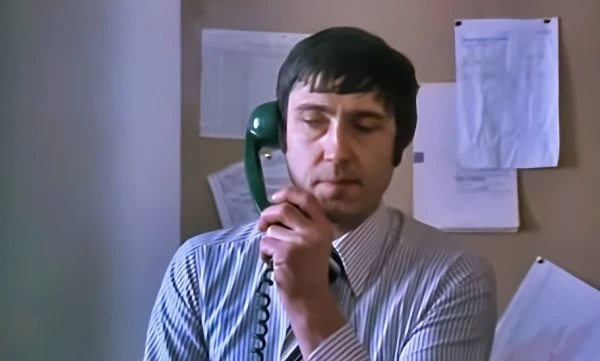
Frank’s gang include John Junkin, Frank Mills, Oscar James and Peter Blake. Other notable actors included Norman Rodway (as Inspector Bryce - the man who put Frank away), Brian Croucher (Frank's only real friend Chris), Andrew Paul as his son Paul Ross with Linda Robson as Paul's girlfriend Mo, Brian Cox (as gangland rival McGrath), Derrick O'Connor and Bryan Marshall (two of McGrath's heavies). Victoria Fairbrother gives an exceptional performance as Eve. Lynne Farleigh and Lynda La Plante also play roles in the series.
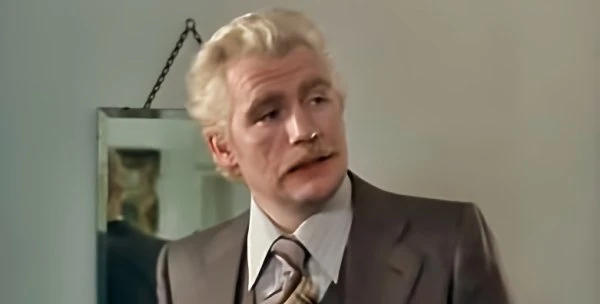
In the weeks leading up to its first episode, the series received extensive publicity. Brief clips were shown to pique viewer interest, featuring a character who cryptically revealed that ‘Frank Ross is OUT.’ Additionally, during the show’s run, graffiti proclaiming ‘Frank Ross is innocent’ appeared across London—a parody of the ‘George Davis is innocent’ campaign slogans still visible on walls at the time (despite neither the fictional nor the real villain actually being innocent). When a rail strike disrupted many people’s plans to be home for the final episode, the question ‘Who betrayed Frank Ross?’ was scrawled across blackboards at Euston station. Out was hugely popular at the time of its release with an average audience of 10 million viewers. Tom Bell was nominated for Best Television Actor BAFTA but despite this, he declined to make a sequel.
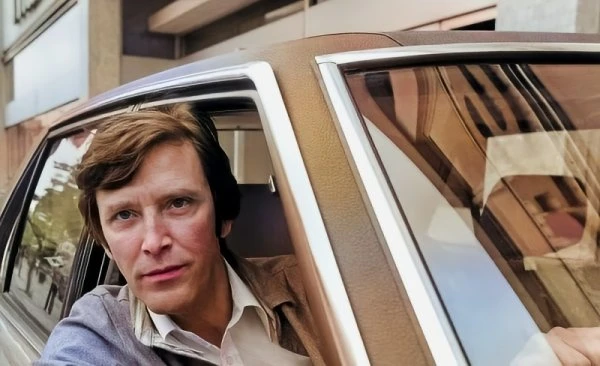
Out stands as a lasting and influential work of television drama. Euston Films’ approach of capturing fast-moving action on location using 16mm cameras lent an authentic realism to the series. Its success directly paved the way for Fox, an even more ambitious endeavour aimed at pushing the boundaries of the serial format for which Trevor Preston received the 1981 Bafta Television Writers’ Award.
Despite the abundance of violent encounters, writer Trevor Preston’s portrayal of authentic, downtrodden criminals—both within and outside the police force—elevated the series far beyond the typical ‘smash-and-grab’ narratives found in most cops-and-robbers stories.
Seen this show? How do you rate it?
Seen this show? How do you rate it?
Published on May 13th, 2024. Written by Laurence Marcus for Television Heaven.


